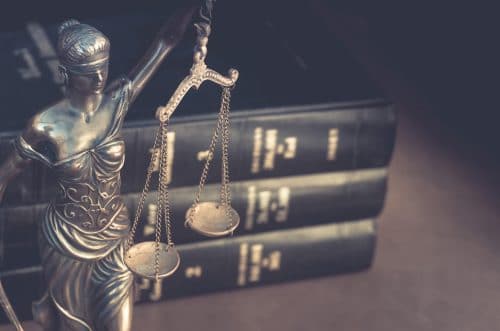Civil and criminal matters are separate, so you can and should pursue a personal injury case regardless of the existence or outcome of criminal charges.
 In some cases, causing an accident can expose the at-fault party to both civil and criminal actions. One common example is a drunk driving accident. The driver could be prosecuted for DUI, as well as targeted in a personal injury claim by any motorists or pedestrians who were hurt in the accident.
In some cases, causing an accident can expose the at-fault party to both civil and criminal actions. One common example is a drunk driving accident. The driver could be prosecuted for DUI, as well as targeted in a personal injury claim by any motorists or pedestrians who were hurt in the accident.
If you have been injured in an accident for which the at-fault party is facing criminal charges, you may wonder how this will affect your personal injury case.
What if the Charges are Dropped? Just because the criminal charges against the person who injured you get dropped doesn’t mean you should also drop your personal injury claim. In a criminal case, the prosecutor needs to prove that the defendant committed a crime, while in your civil case, your attorney needs to prove that the defendant’s negligence caused you to suffer an injury. These are separate issues. Even if there is not enough evidence to justify criminal charges, this will not prevent you from pursuing a civil case. Take the example of Eric Garner—a grand jury decided not to indict the police officer who crushed him to death; yet his family won $5.9 million in a wrongful death settlement.
What if the Defendant is Found Not Guilty? A not guilty verdict doesn’t automatically mean you’re going to lose your personal injury lawsuit. It is important to understand that there are different standards of proof for civil and criminal cases. In criminal court, a defendant has to be found guilty beyond a reasonable doubt. In civil court, you only need to show that a preponderance of the evidence points to their culpability. This is why civil courts and criminal courts can consider the same issue and come to different verdicts.
What if the Defendant Pleads Guilty or is Found Guilty? A guilty verdict can help support your personal injury claim. For example, if a driver pleads guilty to or is found guilty of DUI in criminal court, this will help establish that they were in fact drunk at the time of your car accident and therefore liable for your damages.
What if the Defendant Pleads No Contest? When a defendant pleads no contest instead of guilty, this means that they are admitting that the facts of the charge against them are true, but they are not admitting guilt. This is an important distinction because a no contest plea cannot be used against the defendant in civil court. Instead, the plaintiff will have to present other evidence to prove the same point—for example, instead of using a DUI conviction to show alcohol impairment, the plaintiff will need to call witnesses such as the arresting officer or present evidence such as the results of a breathalyzer test.
A Note About Restitution: Whether the defendant pleads guilty or no contest or is found guilty at trial, the court may order them to pay restitution to the victim. Restitution can cover economic damages associated with the incident, such as medical bills and property damage (in the case of a car accident). However, even if the court orders restitution, you can still pursue a civil case in order to recover non-economic damages such as pain and suffering. If the civil matter is settled before the criminal matter, you may receive both economic and non-economic damages in your settlement. However, you will most likely be asked to sign a waiver that will prevent you from receiving restitution in the criminal matter.
Need Help?
If you need representation for a personal injury claim, please contact us at 800-333-0000 today.



